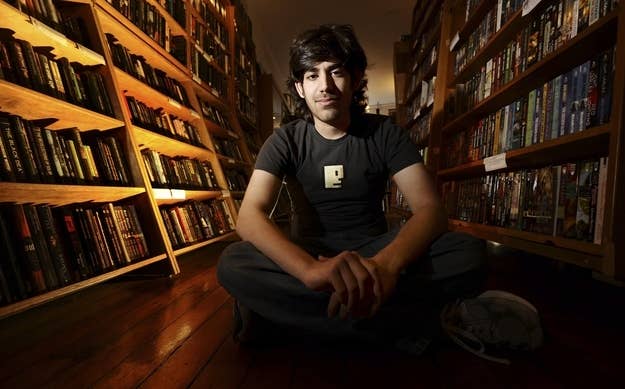
In a 2001 interview with public radio station WBEZ, a precocious 14-year-old named Aaron Swartz, credited with contributing to the RSS standard, told the host, Lew Koch, what he imagined the future of the internet would look like. "It's harder to predict the short-term future than the long-term future," he warned, but he suggested that the "semantic web" was just over the horizon. It was to be a "two-way web," he said, "where users of the web can really write their own webpages."
Swartz, who was facing possible jailtime for illegally downloading a trove of academic articles from JSTOR, committed suicide on Friday.
Users, he explained, would be able to "really take part, so it's not just a passive medium where you sit and read what other people have writtten, but you can get a space on the web and really write." LiveJournal had been founded two years earlier; MySpace wouldn't be founded for two more years.
Listen to the interview here:
In the more distant future, he imagined search engines that could answer complex questions, and computers that would "be able to take care of the mundane tasks in our daily lives." He pushed back against questions about artificial intelligence. "I'm not a big believer in AI," he said, granting to the host, however, that "we're going to have computers that are much more conversational."
Asked how he became involved with RSS, and how he was able to make name for himself at such a young age, he talked enthusiastically about mailing lists. "No one knows how old you are," he said, "no one knows who you are; you just sort of send this email out, and based on what you wrote they send out a response." At the time of his interview, his voice had not yet dropped.
"There were other people reading what I wrote and sending responses, and that was sort of exciting," he said, four years before he joined Reddit's cofounders to help develop the site into the megaplatform it is today. "I began to do it more and subscribe to more and more lists and send out more and more email," he said, "and sort of got pulled into it almost."
